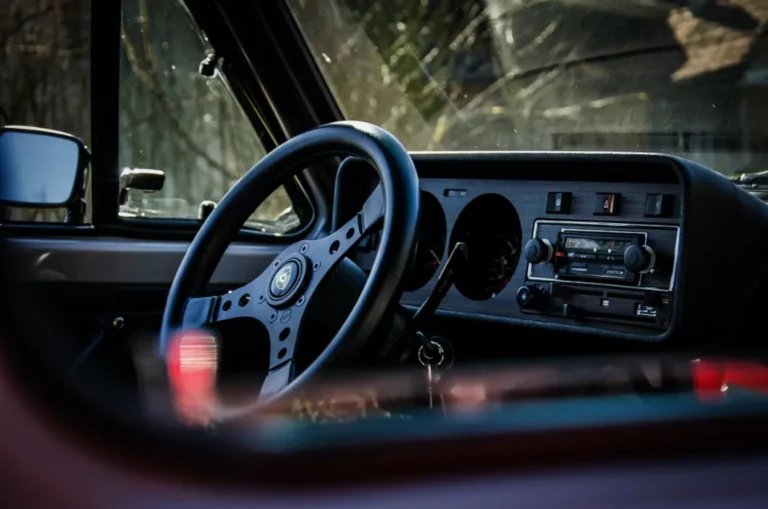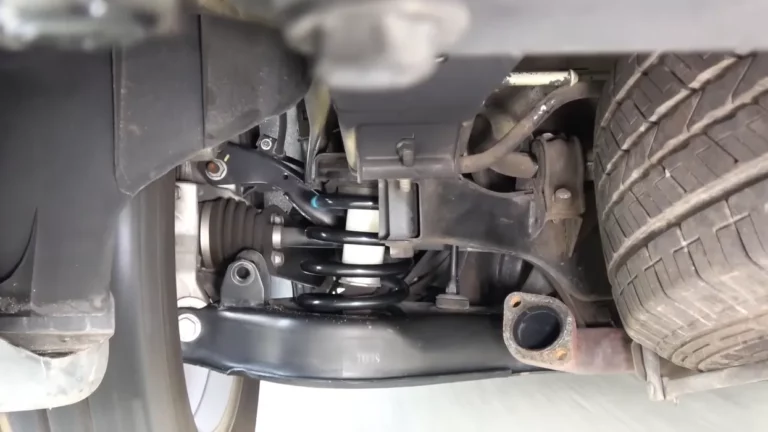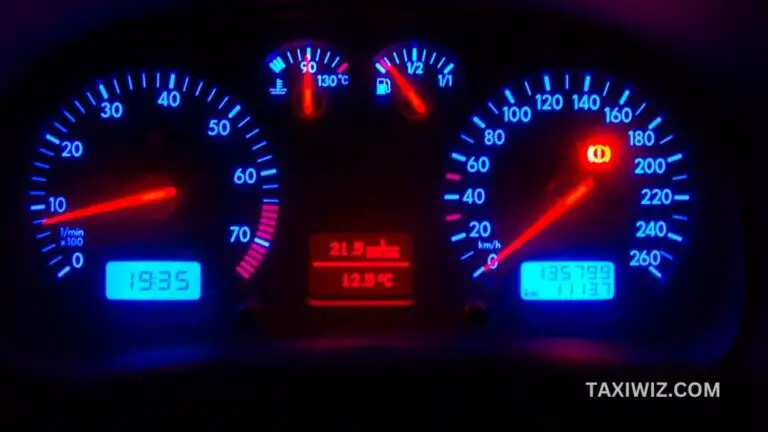Will A Tune-Up Stop My Car From Shaking? [Explained]
We’ve all felt the unsettling vibration that ripples through your steering wheel and seats. The one that leaves you feeling like you’re riding a roller coaster on an unpaved road. However, will a Tune-Up Stop My Car from Shaking?
A tune-up is like giving your car a much-needed spa day. It involves a comprehensive inspection and maintenance of various components, ensuring that everything is in tip-top shape. A proper tune-up can work wonders in stopping your car from shaking. But do you need it?
Before you resign yourself, consider the pros and cons of a tune-up. Understand how, if at all, it can stop your car from shaking. Find out all about car tune-ups in this article!
What Does a Tune-Up of Your Car Mean?
A car tune-up is a set of maintenance steps carried out as a preventive measure. It enhances the functionality, dependability, and fuel efficiency of your car.
It entails checking, changing, and replacing particular parts to make sure they function as efficiently as possible. A car that has been properly tuned runs smoothly, increasing engine power and fuel efficiency.
Acceleration, responsiveness, and the overall driving experience are all improved. Following the Preventive Maintenance Schedule (PMS) can be considered as effective as a tune-up.
Do You Really Need a Tune-Up of Your Car?
If you have a modern car, say 2000 and up and someone tells you that it needs a “tune up” you just walk away.
Modern cars do not require a tune-up anymore. Nothing needs to be tuned or adjusted besides checking the valve lash on some Japanese automobiles. Spark timing and mixture control are all controlled electronically and there is nothing to tune.
The manufacturer now has “service intervals”, based on mileage and time. They basically check the chart of what should be checked or replaced.
In the days of “tune ups” one could actually “catch” a potential problem due to the short intervals of required maintenance. The most frequently replaced items today are belts, filters, some fluids, brake and suspension/steering components, seals and gaskets.
Will a Tune-Up Stop My Car from Shaking?
Depending on the type of vibrations and noises and also the type of shaking a tune-up may or may not stop your car from shaking. Here are some situations a tune-up can stop the car from shaking:
- From the outside, if you hear less valvetrain noise, then a tune-up may not even be necessary. But in the case of harder noises, it suggests bad/old NPI heads and old crapper lifters. These need to be replaced during tune-up.
- If the car is running well, that rules out the possibility of a miss, which would make it shake/vibrate really bad at idle. If the exhaust was against the body/frame somewhere, it would be very loud and would get worse when you lug the engine. In this case, the tune-up will fix the shake.
- Over time, engine mounts or vibration dampeners can wear out. You will find quite a wobble and it would likely shred a belt. This leads to increased shaking engine vibrations felt throughout the car. Although not typically addressed during a standard tune-up, a skilled the mechanic may identify worn or damaged mounts and replace it.

- A vacuum leak/exhaust leak will cause the car to shake/vibrate really badly at idle. Even a smallish leak can cause this. During a tune-up, swap your old Gas Tank and you might be good to go.
- When the tires and wheels are out of shape and misadjusted, a tune-up can fix it. Have the wheels balanced. Visit a bigger shop with a good dynamic wheel-balancing machine. For any obvious lateral movements / bulgea, replace damaged tires that have bulged.

- In a car equipped with ABS, your brake pedal will shudder if you slam on the brakes very hard or on a loose/slippery surface. This is usually accompanied by a metallic clicking sound. Your brake discs may be warped or uneven. Check for uneven wear of your discs/drums.
The lateral runout of any one disc (or radial runout of any one drum) shouldn’t exceed 0.1 – 0.2 mm. Tune-ups will replace these discs to stop the shaking.

- Look for a broken wheel bearing, a loose or worn-out tie-rod end, or a loose steering box. Replacing the broken component during tune-up will fix the issue.

How to Tune Up Your Car to Stop It From Shaking?
A good service writer would urge the customer to let the shop execute a diagnostic service in which all the sensors, the fuel injection system, and the ignition will be tested to determine if anything is out of specification before providing an estimate for repairs. This is done in the event that the car has a running issue.
The only real tune-up work that can be done on modern cars is to replace the spark plugs and perhaps clean or service the fuel injection system for improved performance.
Now, it’s more crucial to perform routine maintenance on the fluids and filters. If fluids are not changed frequently, they do break down and create wear. Many new cars have electric power assist so this is not necessary.
Brake fluid should be flushed out every 2 years if it’s a 4×4 transmission. The front differential and transfer case should be serviced with new fluid, and the rear differential if equipped should be serviced as well.
Transmission fluid, filter, and coolant should all be replaced every 4-5 years, though in some cars, more frequently. Checking and replacing the cabin and engine air filters as necessary. Of course, it’s vital to change the oil and filters frequently.
What to Know Before A Tune Up to Stop My Car From Shaking?
Please keep in mind the following:
L-3 : Listen (to) & learn (the) language (of your car).
This means listening and deciphering what the car has to say. You can start learning the language of your car from here.
T-4: Tire Treads 2. Show Tales.
Even before your car begins to vibrate, an uneven tire or wheel, a damaged wheel bearing, or a faulty alignment will all result in changes in the tread pattern of your tires.
W-5: Wobbly Wheels Won’t Work Well.
If the steering or automobile suddenly begins to shake, slow down and stop securely. Ensure that the steering linkage nuts and wheel nuts are installed and secured.
Cost of a Tune-Up to Stop My Car from Shaking
A standard tune-up that includes checking and maintaining the ignition system, changing the spark plugs, and taking care of other typical maintenance issues can often cost between $100 and $300.
But this will vary from car to car and the level of damage.
Will a Tune-Up Stop My Car from Shaking? – FAQs
Can a tune-up completely eliminate car shaking?
No, it may not eliminate shaking in all cases. It depends on the specific underlying issue causing the shaking.
How often should I consider getting a tune-up for my car?
It is generally recommended to get a tune-up every 30,000 to 50,000 miles or as per your vehicle manufacturer’s guidelines.
What are the common signs that indicate the need for a tune-up?
Common signs include engine misfires, reduced fuel efficiency, rough idling, difficulty starting the car, and overall poor performance.
How long does a typical tune-up procedure take?
Generally, it can take a few hours to complete a comprehensive tune-up. But it depends on the specific tasks involved, the condition of your car, and the mechanic performing the service.
Can a tune-up improve fuel efficiency along with reducing car shaking?
Yes, a tune-up can improve fuel efficiency by ensuring proper ignition, fuel delivery, and air intake systems.




